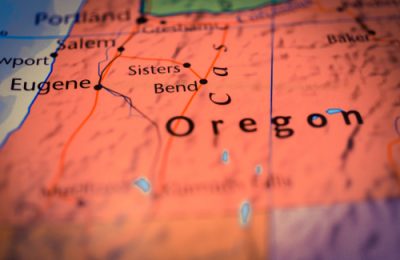
Reading Time: 21 minutes
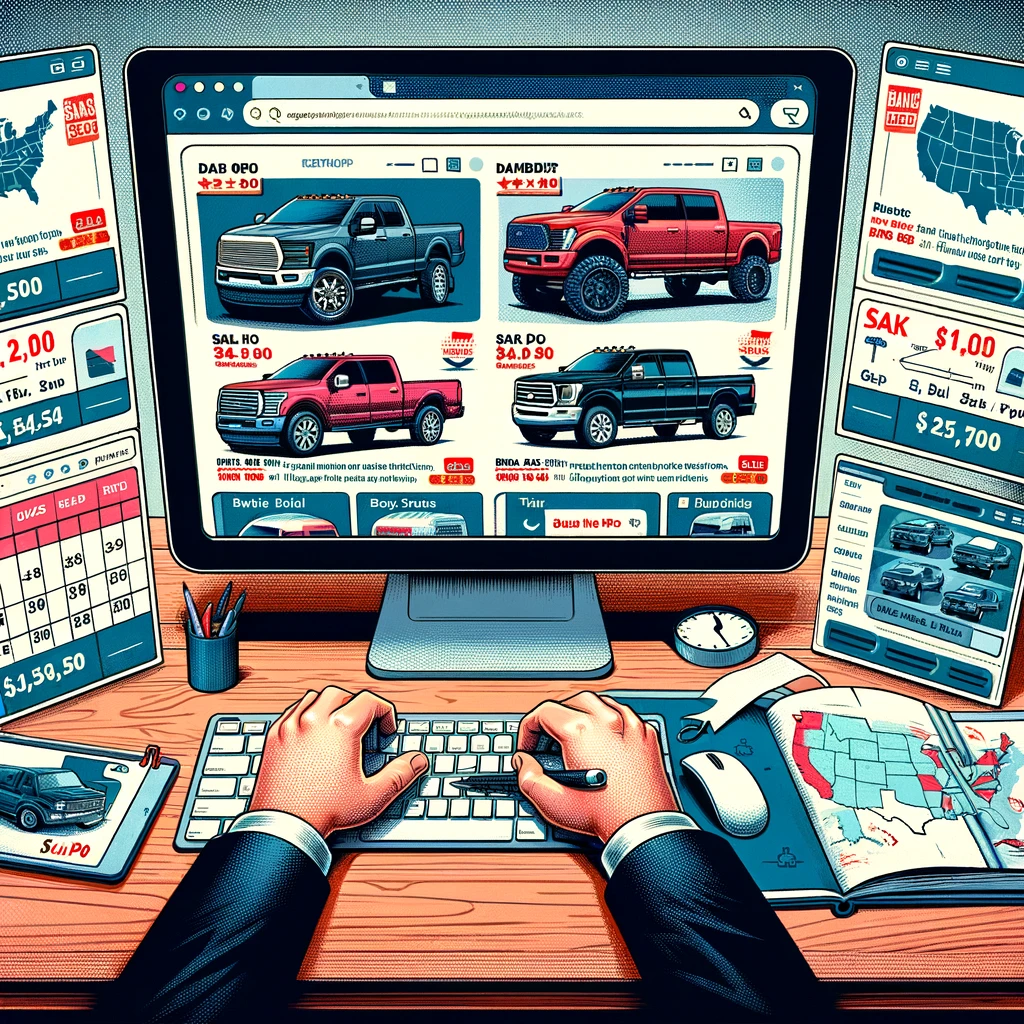
When I set out to buy a truck, I always look for the perfect deal. And let me tell you, timing is everything—the best time to buy a truck can save you a bundle. As someone deeply embedded in the truck buying journey, I’ve learned a thing or two. For instance, exploring options to buy a truck online opens up a world of convenience and variety right at your fingertips. It’s true! And, did you know that when you’re ready to make that purchase, the cheapest state to buy a truck can make a serious difference to your wallet?
So, let’s start the journey together. Buy a truck that’s the best for you, without breaking the bank.
How to Buy a Truck | Best Time to Buy a Truck | Cheapest State to Buy a Truck
Pickup trucks and people all come in different sizes, shapes, colors and abilities. The great thing about pickups and trucks is that, unlike a lot of people, you can choose which ones you want in your life! But seriously, the demand for these utility vehicles have steadily grown to be running close to parallel with passenger vehicle sales for the first time in automotive history. That said, now is really the best time to Buy a Truck Online.

Alright, let’s gear up for our quest in the world of truck buying. Imagine me navigating the maze of truck choices with a compass that spins wildly! Because let’s face it, with such a vast array of trucks, who wouldn’t get a little dizzy? Together we can crack the code on snatching up a deal, without getting taken for a ride.
Finally, when it comes to shipping your new beast of burden, how about I hook you up with a sweet deal? Picture this: you, saving 20% off your first shipment! Who says you can’t mix business with a little wallet-friendly pleasure?
Discover more about snagging your truck and pocket-friendly shipping with Nationwide Auto Transportation’s heavy-duty shipping and car buyer’s transport guide.
How to buy a truck for cheap out of state
Wondering when is Best Time to Buy a Truck? Or maybe how to buy a semi truck? Looking for a good used pickup? Autotrader Trucks is a great place to start looking to Buy a Truck Online. Now imagine finding a great deal on a truck or pickup that is hundreds of miles from your home? The folks at Nationwide Auto Transport aren’t bothered by that at all. We ship thousands of heavy duty shipping orders, including boats, RVs and trucks all across the country every year.
In your journey to buy a truck, understanding the nuances of out-of-state purchases can unlock even more savings and options. Whether you’re eyeing a robust pickup from two states over or a sleek model cross-country, our comprehensive guide on Buying a Used Car Out of State from a Dealer offers insider tips and crucial steps to make your buying process smooth and secure. Dive into our expert resource and expand your horizons for that next big purchase.
Best Time to Buy a Truck | The Start
Timing Your Purchase Perfectly

Believe it or not, timing can make or break a truck deal. Snagging a truck at year-end sales, during holiday bargains, or just as new models hit the scene can mean big savings. Let’s break it down:
- End of Financial Year: Dealers clear out old stock, making room for new. Bargains galore!
- Holiday Sales: From Black Friday to New Year’s deals, holidays are prime saving times.
- New Model Releases: When the latest trucks roll in, the “old” become instantly cheaper.
Check out this handy guide on the best times to buy a truck.
Seasonal Shopping Smarts
The season can greatly impact truck prices. Here’s the scoop:
- Spring & Summer: Demand surges, so do prices. Wait if you can!
- Fall & Winter: As temperatures drop, so do prices. Dealers are eager to negotiate.
Peak Months for Truck Deals
Certain months can unlock exclusive deals:
- October to December: Dealers hustle to hit annual goals. Your chance to haggle!
- January & February: Slow sales mean more willing dealers.
Thinking about expanding your garage with a motorcycle from another state? Dive into our comprehensive guide on how to buy a motorcycle out of state. We cover everything from finding the perfect ride to handling paperwork and shipping logistics, ensuring a smooth and hassle-free purchase. Start your journey towards owning your dream motorcycle today by visiting How to Buy a Motorcycle Out of State.
Is There a Cheapest State to Buy a Truck?
Buying a truck? Your location can make a big difference in how much you pay. From sales tax to registration fees, the cost can vary widely across the states. Let’s explore how geography affects truck pricing and where you can find the best deals.
Geographic Price Variations
Why do truck prices change from one state to another? It’s all about the costs that come with buying a vehicle. Some states have high sales taxes, while others have various fees that can add up quickly. For instance, states like Oregon and Montana have no sales tax, which can make a big difference in the total price of your truck.
Discover the best car shipping routes and tips for a hassle-free vehicle relocation with our detailed guides and articles. Learn about routes.
Top States for Truck Deals
Looking for the lowest prices on trucks? Some states stand out for their great deals. Here’s a look at where you can save the most:
- New Hampshire: No sales tax and moderate fees make it a great place to buy a truck online.
- Oregon: With no state sales tax, your purchase could be significantly cheaper.
- Alaska: Low vehicle registration fees and no sales tax make it attractive.
- Montana: No sales tax and lower registration costs are a big plus.
- Delaware: Low vehicle registration fees and no sales tax on purchases.
Each of these states offers unique advantages for truck buyers, from lower overall costs to fewer taxes and fees. Whether you’re looking for a new or pre-owned truck, consider making your purchase in one of these budget-friendly locations.
How to Choose the Right Platform
When you’re ready to buy a truck online, choosing the right platform is crucial. You want a site that’s not just loaded with options but is also trustworthy. Here are some top picks:
- Autotrader (autotrader.com): Great for a wide selection of trucks, from light-duty pickups to heavy-duty workhorses.
- CarGurus (cargurus.com): Offers detailed insights, including price analysis and dealer reviews.
- Commercial Truck Trader (commercialtrucktrader.com): The go-to for semi trucks and commercial vehicles.
Tips for Online Truck Buying
Buying a truck online can be a breeze if you follow these tips:
- Verify Vehicle History: Always check the truck’s history report through services like Carfax (carfax.com) or AutoCheck (autocheck.com). These reports can reveal past accidents, service history, and more.
- Secure Financing: Shop around for the best loan rates before you commit. Credit unions and online lenders often offer competitive rates. Websites like LendingTree can help you compare options.
- Understand the Return Policy: Make sure the platform offers a straightforward return policy. This can give you peace of mind, knowing you can return the truck if it doesn’t meet your expectations.
- Inspect the Truck Virtually: Take advantage of virtual tours and detailed photographs to inspect the truck. Some sites offer live video walkthroughs, so you can ask questions in real time.
- Ask for a Pre-Purchase Inspection: Before finalizing the purchase, consider hiring a local mechanic to inspect the truck. This can help identify any potential issues that weren’t apparent in the listing.
Remember, buying a truck online should be about convenience, selection, and savings. With the right approach, you can navigate the digital marketplace to find your perfect truck without ever leaving home.
How to Buy a Pickup Truck | 8 Things to Bring With you

Your research is complete, your credit report is accurate, and you’re ready to buy a pickup truck. Dye Autos.com has a large range of well priced inventory to browse.
When it is time to Buy a Truck Online, that new car, boat or pickup you will need to have some paperwork in order. Make sure that you have the following documents at the ready if you are looking at finance for your new vehicle:
- Valid driver’s license. The federal government requires customers to identify themselves and different lenders may require different types of documentation. You need a government-issued photo identification card with your picture and address. (passport or driver’s license).
- Proof of insurance. The dealership will ask you to provide proof of insurance that complies with state law and meet any other conditions when you sign the bill of sale before you buy a truck.
Do you have an existing auto insurance policy? If so, you may be covered under it for a grace period for your new purchase, therefore check.
How to buy a used truck | Cheapest State to Buy a Truck
Want the best advice on How to buy a used truck? Car Depreciation Rates for Dummies Like Me is a particularly relevant post to read if you are looking for the best time to Buy a Truck Online, or to buy a used truck online. Read on to see what other documentation you can also start getting ready, or that you will eventually need.
- Trade-in documents
- Title Certificate
- Registration
- Payoff information and loan statement
- You can find the lender’s contact information on your loan statement.
- Detailed records of services
- Additional keys
- Accessories that were included with your trade-in
Purchase a Pickup? | You Need Proof
- Proof of income should include at least your last two payslips, but if you are working for yourself, things can get a bit more complicated. While each deal is different, you should bring at the very least your most recent tax return and latest three bank statements.
- Proof of residence. The federal government mandates that lenders (and dealerships that work with them) gather information about your home and provide proof of it. Most dealers may accept a current driver’s license. You can also use personalized mail that was delivered within 30 days or your mortgage statement to verify your home address. This could include:
- The utility bill
- Card statement
- Bank statement
- Property tax bill
- Benefits statement for Medicaid or Medicare
- Insurance policy for vehicle
- Renters or homeowner’s insurance
- P.O. Boxes are not allowed. Army and FPO boxes are the only exceptions.
- What do lenders mean when they talk about references? Basically you can list people who know you, but do not live at the same address as you, as a reference. Keep a list of around six references with their details as most lenders ask for between 4 and 6 names.
Payment methods
- Cash
- Personal check
- Cashier’s check
- Credit card
- Debit card
- Trade-in equity
- Trade-ins can be used as down payments, with the amount of equity being your down payment amount. Equity refers to the difference between the payoff amount of your trade-in and the vehicle’s actual cash value.
- Get pre-approval from the dealership that you intend to buy a truck from. Dealerships have close relationships with ALL types of lenders, including lending partners that are willing to look at buyers with less than perfect credit scores.

Buying a Vehicle Out of State? Your guide to the best car deals will steer you in the right direction, while you are looking, check out Vroom Auto Sales for great deals to Buy a Truck Online.
Keep in mind that Nationwide Auto Transportation have ROUTES that cover practically the whole of the USA.
Pickups For Sale | How to buy a truck on a budget
It’s great when you know how to buy a track on a budget right? Now, if you’re shopping for a new pickup truck, you’ll notice that they’re generally more expensive when compared to family cars or SUVs.
Something else that will be blindingly clear is the massive jump between the price of an entry model pickup like a Ford Ranger, and say a Ford F450 with fully loaded accessories and extras. The former can be bought for around $24 000, the latter can approach $100 000!
Here are 10 Pickup Trucks for Sale worth looking at
Based on the latest information and reviews, here’s a brief overview of the top 10 trucks for 2023/2024:
- 2024 Ford Maverick: A compact but capable truck with an impressive payload and towing capabilities.
- 2024 Hyundai Santa Cruz: Offers a blend of sleek design with practicality in a compact form.
- 2024 Toyota Tacoma: Modernized to compete strongly in the mid-size segment.
- 2024 Chevrolet Colorado: Known for the ZR2 Bison off-road model with robust features.
- 2024 Nissan Frontier: Balances rugged aesthetics with modern amenities.
- 2023 Ford Ranger: Noteworthy for its towing capacity and turbocharged engine.
- 2024 Ford F-150: A household name that now includes advanced technology and turbo engines.
- 2024 Chevrolet Silverado 1500: Delivers strong towing capabilities and a workhorse attitude.
- 2024 GMC Sierra 1500: Combines sharp design with versatile powertrain and cab configurations.
- 2024 Ram 1500: Maintains high standards of interior quality and ride comfort, with varied trim levels from work to luxury.
Each model offers a range of capabilities, from urban daily driving to heavy-duty tasks, with options for electrified powertrains and luxury amenities.
Although base models may be the best choice for those with modest budgets, savvy shoppers need to understand how wide the price spectrum for pickup trucks can be before starting their search. Picking a body style such as a crew cab or all-wheel drive will significantly jack up a truck’s sticker price.
Buy a Truck Online | Best Time to Buy a Truck

Most people looking for a truck or pickup on the internet will more than likely search “pickups for sale near me”. It will be a miracle to find the Best Time to Buy a Truck.
Most people looking for a truck or pickup on the internet will more than likely search “pickups for sale near me”, and it will be a miracle to find that perfect pickup truck in between all the hundreds of adverts.
Search for pickup trucks for sale online – Find a discounted truck at:
- Autotrader,
- Kelley Blue Book’s 10 best
- Carvana.com
Read Buy and Sell Cars on Craigslist Without Being Scammed: Your Complete Guide for more tips on how to buy a truck online, safely!
Why You Might Need to Buy a Pickup Truck
With a powerful engine and a tow package, a SUV can do more than a pickup truck and is often a more comfortable drive, so why even consider buying a truck or pickup?

Trucks carry more stuff than any other form of transportation. Importantly, cargo gets carried separately from the passengers. This is useful if you regularly haul building materials, dirt, plants, or anything that requires you to hose out the truck bed.
As a general rule, trucks can tow more than most SUVs, so you’re probably better off with a pickup if you often haul trailers or boats. The resale values of trucks are also slightly higher than those of SUVs, and with vehicles lasting longer than ever before, chances are you will be driving your pickup truck for quite a while.
The average vehicle on our roads is more than 10 years old, and when you decide it’s time for something new, your truck would have retained more of its original value than a passenger vehicle or SUV.
Best Time to Buy a Truck | When is buying a pickup a bad idea?
A normal passenger sedan or SUV might be the way to go if you do not haul stuff around every day, whether for business or just as a daily routine. Many SUVs are even built on ladder frames similar to pickups, making them capable of handling rough weather and off-road driving.

Apart from this, they are cheaper to run. Besides, they offer better fuel economy while the suspensions are tuned to offer more comfort to passengers. Unquestionably, they’re often safer.
A total of 21 SUVs and no trucks received the Insurance Institute for Highway Safety’s coveted Top Safety Pick Plus award in 2021. Need immediate answers? Talk directly to our car shipping advisors at Nationwide. Just dial 1800-311-7073 for expert assistance now.
Does Your Truck Size Up?
Anyone can recognize a pickup truck, right? Usually, their rear ends with a cargo bed and separate passenger cabin is a dead giveaway. But can you tell the difference between a mid-size or a full-size truck, or what is heavy duty and what is not? Each of these variations also has its own compromises, many of which you might not notice until you’re already familiar with their unique attributes.
The mid-size truck is the smallest version of this American species, and most people probably recognize name plates such as the Ford Ranger and Toyota Tacoma.
Midsize Pickups
Even though mid-size pickups have smaller cabs and cargo beds and can’t tow as much as full-size pickups, their lower asking prices and smaller dimensions make them more accessible and easier to maneuver in tight spaces, such as parking lots and off-road situations. As well as being easier to enter and exit, they are usually more fuel efficient.
Due to the fact that most full-size trucks are offered in light- and heavy-duty variants, they are more diverse than mid-size trucks. Automakers will share parts and design cues between the two roles, though they’re classified separately and have vastly different capabilities. As an example, the interior of the light-duty Chevy Silverado 1500 is virtually identical to that of the heavy-duty 3500HD.
As the rating increases, the truck’s towing and hauling capabilities improve, but its driving behavior and ride quality typically deteriorate. For most people, light-duty pickup trucks are the better choice, and their impressive capabilities make them one of the most versatile types of vehicles.
Why Buy a Truck | Most versatile types of vehicles
Looking for a Toyota or a Chevy? Commercial Truck Trader has a large inventory of:
- Delivery Trucks
- Dump Trucks
- Conventional Sleeper Trucks
- Flatbed Trucks
- Cargo Vans
- Wrecker Tow Trucks
- Utility Truck
- Service Trucks
- Pickup Trucks
- Rollback Tow Trucks
- Tow Trucks
- Conventional Day Cabs
If you are moving to a new city for any reason, it is a major life event—the Ultimate Relocation Guide by Nationwide Auto Transportation will help to take some of the stress out of your move.
What are the Different Types of Pickup Trucks?
The pickup truck has become an iconic vehicle that is no longer limited to farmers and traders. Workhorses like these have become very popular, whether they’re being used for utilitarian purposes or as fashion statements. With this in mind, pickup designs now include features that can be used for various activities, from urban use to recreational activities to farming applications.
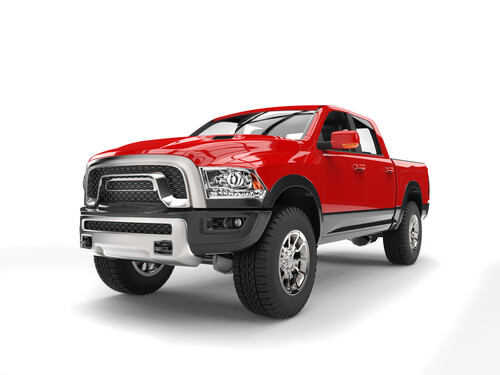
Different pickup trucks are meant for different purposes and the engine and drivetrain configuration has a lot to do with this.
Pickup trucks have evolved from rural utility vehicles to motor industry icons and you can see them on farms, ranches, dirt bike tracks, suburban driveways, and even in the parking bays of Fortune 500 company executives. The suburban setting has even become popular, and soccer moms, or dads, can be seen zipping about in their pickups everywhere. The types of trucks available have evolved to meet a variety of needs:
Purchase a Pickup | What Type are You looking for?
- Light-Duty Pickup Trucks: Most local tradesmen use light-duty pickup trucks, including electricians, gardeners, and people who own a pickup truck for commuting in the city and suburbs. Their engines are generally smaller, their wheel bases are shorter, and their load bins are smaller.
- Medium-Duty Pickup Trucks: They offer a great combination of power and size, which makes them ideal for everyday use. All types of people use them because they are relatively small and maneuverable and they can even fit in a regular garage.
- Heavy-Duty Pickup Trucks: In their own class, heavy-duty pickup trucks typically feature large displacement V8 engines and extra-large engine capacities. Unlike other pickup versions, these vehicles have suspensions that allow them to carry heavier loads.
But Wait, There’s more
- Luxury Pickup trucks. In the world of trucks, luxury refers to the fit and finish of the cabins, the addition of various add-ons that make it more comfortable to drive, as well as the inclusion of gadgets and fancy features that offer more comfort than performance.
- Full-Size Pickup Trucks: The high ground clearance of full-sized pickup trucks makes them ideal for off-road driving. To boost their off-road capability, these trucks often come with all-wheel-drive or 4-wheel drive options.
- Compact Pickup Trucks: Compact pickup trucks have small load bays and the passenger compartment encapsulates most of the vehicle while the front-end often resembles those of sedans.
- Regular Cab Pickup Trucks: In the past, pickup trucks were made to transport loads rather than carry people and for this reason, their cabs are small.
- Crew Cab Pickup Trucks: Crew cab pickup trucks are pickups with four regular doors on the vehicle, and the cab of the vehicle can accommodate up to 5 people. Two people sit in the front, including the driver, and three people in the back.
- Extended Cab Pickup Trucks: These have a front and rear seat, but only two full-sized doors on the front. In most cases, the rear seats can be accessed by opening the front door and leaning the front seat forward.
Cheapest State to Buy a Truck | And some more…
- Chassis Cab Pickup Trucks: A truck without a load box but with a cab, usually a regular cab or an extended cab. Its chassis sits exposed in place of the load box.
- Electric Pickup Trucks: In the pickup truck sector, electric vehicles will soon become more common due to their increasing reliability, speed, power, and charging capabilities. Along with some new players in the market, some major pickup truck manufacturers are developing electric models.
- Hybrid Pickup Trucks. The next best thing to a fully electric pickup truck, which is almost on its way, is a hybrid pickup truck. Combining combustion engine technology with electric motor technology results in a hybrid vehicle that uses both engine technologies.
- Looking to transport your newly purchased truck? Check out our guide on car shipping vs. towing at Nationwide Auto Transportation for essential tips and insights to ensure your vehicle arrives safely at its new home.
Buying a Car Online – Top 7 Tips is a post that will help you find a good deal online and to recognize a scam when you see one.
Can You Tow with a Front-Wheel Drive?
Fuel economy is generally better with smaller engines. It is important to remember that these engines typically have to work harder to move additional weight, which can impact fuel economy.
Towing enthusiasts may want to consider the more powerful engines, as well as the diesel options offered on many models. Despite being more expensive, diesel powertrains are more fuel-efficient and offer substantial torque for easier towing.
Know Your (Towing and Payload) Limitations | Best Time to Buy a Truck
When it comes to the payload and towing capability of a pickup truck, there are a few things that must be discussed. Size and classification of the truck influence both ratings of your new truck, so bigger and heavier trucks can haul heavier loads and pull more weight behind them. In addition to axle ratios, gross vehicle weight rating (GVWR), and gross combined weight rating (GCWR), other obscure variables also influence the final figures. The higher the axle ratio, the greater the towing capacity. A vehicle’s GVWR is the maximum weight it can carry with passengers and cargo. You can determine the truck’s GVWR by adding this amount to the maximum trailer and cargo weight. Got it? Good.
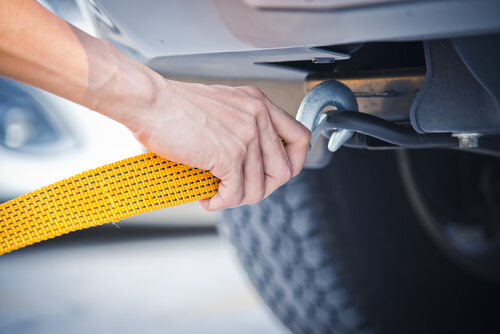
The body-style configuration and mechanical specifications should be considered before a final decision is made by people who regularly tow or haul. You should also overestimate the capacity needed to avoid potentially unsafe situations.
Consider Truck Engineering Before Buying a Truck
The design of a truck is different from that of a car or SUV. Despite sharing some parts, they are mechanically different and it doesn’t require an engineering degree to understand them. You should be aware of certain basic facts, however.
- Do you need a personal loan for a new truck?
- What are depreciation rates, and why does it matter?
- Would you consider an EV truck for towing purposes?
Truck and Pickup Frames
A truck’s frame is the biggest mechanical difference between it and a car. Typically, car bodies and chassis are built together as a single unit and consequently, they have better handling characteristics and a smoother ride on the road… They cannot, however, flex to adjust for uneven terrain off-road.
A truck is built with body-on-frame construction, which means the chassis is separate from the body. As a result, a truck’s structure is much more flexible than a car’s. The flexible frames of trucks help keep all wheels on the ground over rough, off-road surfaces,however the same flexibility causes them to ride rougher on the road and handle slightly worse.
Truck Bed Lengths Explained
What makes a truck different from an SUV is its exposed bed. Most manufacturers offer a variety of bed lengths, and they combine different cabin types with different bed lengths.
The bed of a full-size truck generally ranges from around 5.5 feet to around 8 feet long while for midsize trucks, the bed is about 5 to 6 feet long. An optional bed extender is available from most manufacturers that allows oversized objects to be carried, but cannot be used on a daily basis.
The truck bed is no longer a simple open-top box and modern models come with a variety of tie-down points that can accommodate ropes or ratchet straps. They sometimes include locking storage compartments while a few have power outlets in the bed for tools or tailgate stereos.
With respect to tailgates, many trucks today offer options that go far beyond simply holding items in the trunk.
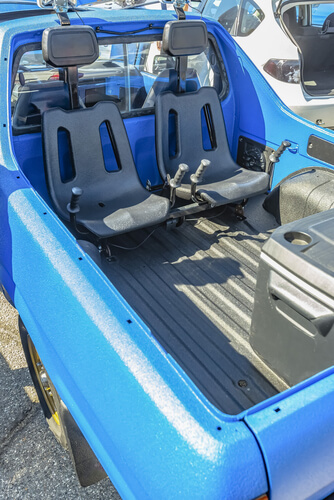
Drivetrains and Buying a Pickup
The majority of trucks come with rear-wheel drive (RWD) or four-wheel drive (4WD) and this is usually referred to as 4×2 and 4×4 by truck manufacturers.
There are advantages to both. A rear-wheel-drive truck is less pricey and can generally tow more than its four-wheel-drive counterpart and while no truck is as agile as a car, a RWD truck handles better than a 4WD truck. 4WD trucks, on the other hand, are more capable off-road and in bad weather. A 4WD truck holds a higher resale value despite being more expensive upfront.
Considering buying your first car? Dive into our comprehensive guide at Nationwide Auto Transportation, where we break down the essentials of purchasing your first vehicle, ensuring a smooth and informed buying process. Click here for insightful tips and strategies: Buying Your First Car.
Where to Buy a Truck? | Cheapest State to Buy a Truck
The majority of trucks for sale in the United States today are automatic transmission only with a few exceptions like the latest Jeep. Looking to buy a Toyota, Chrysler, Dodge Ram, Nissan, or a Jeep in Los Angeles?
A truck is traditionally marketed for its powerful engine, which is capable of towing and hauling larger loads. Despite this, we should note that the most powerful engine option isn’t always the best choice. It may mean more to you to save on fuel with a V6 than the added horsepower you will never need with a big V8 if you rarely tow.
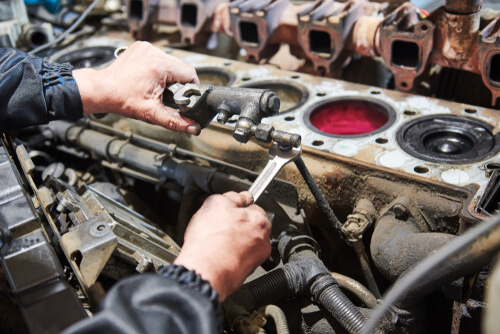
If you are looking into buying a new or used truck or pickup from a dealer such as Cars4Cash or Carmax in the Cheapest State to Buy a Truck, you must decide how you will get it back home. Self-Transport Your Vehicle? Beware the Pitfalls and Potholes shows you what can happen if you decide to move your pickup by yourself.
When it is finally the Best Time to Buy a Truck, an out of state purchase might just do the trick. Read on to learn more.
Cheapest State to Buy a Truck | Top states for pre-owned truck sales
If you’re looking to buy a new vehicle, you might be wondering which is the cheapest state to buy a truck. Let’s face it, buying a new car or truck is never cheap, per se. There are several costs involved, apart from just the cost of the vehicle; you must consider sales tax (state and local), dealer documentation fees, registration fees, and sales and local sales tax. You should bear these costs in mind when you buy a truck so that you can effectively negotiate the price.

Because unexpected fees can result in sticker shock—or even be a deal breaker if you’re on a tight budget —it’s a good idea to budget for those fees. If you live in a state with additional sales tax and other fees, it can be even more expensive.
On the other hand, it is much less expensive to own a car in the Cheapest State to Buy a Truck, like New Hampshire and Florida than in New York or California. That means that it’s often cheaper to buy used cars from out of state.

Where are the low-cost truck buying states?
Some of the cheapest states to buy a truck include North Carolina, Missouri, Wisconsin, Ohio, Virginia, New Hampshire, Oregon, and Florida. In New Hampshire, registration fees and sales taxes are the cheapest, which makes it the overall best state to buy a truck.
Florida | top states for pre-owned truck sales
The price of a new or used truck differs across all states, so it’s always a good idea to shop around. In many cases, Florida has some of the cheapest options. On average, a used truck is about ten percent cheaper than in other states. The state has a generally older population, which means more people are selling their vehicles than in other states. Also, older people tend to be safer drivers and they take better care of their vehicles, which means the vehicles are in a generally better condition.
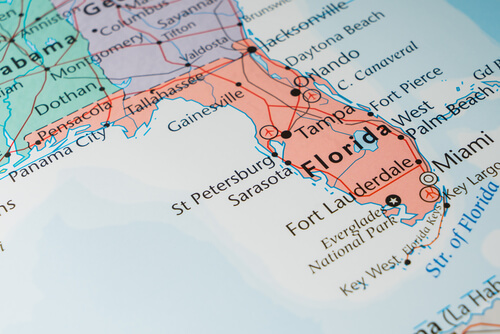
When residents in wealthy parts of Florida sell their vehicles, it creates a buyer’s market. Wealthier people tend to buy new cars every two or so years, and sell their older vehicles. Also, these vehicles have not been driven in snow and salt.
Oregon | Lowest Fees on Trucks
When you buy a truck from out of state, the initial cost is a factor, of course. But there are multiple other fees to bear in mind, and they tend to add up. If you’re buying a car in Oregon, these fees are capped at $130. In New Hampshire and Alaska, the fees are capped at around $360.

In states like Tennessee, Connecticut, Colorado, Arizona and Alabama, these fees can be upwards of $2,000.
Shop Around for the Cheapest State to Buy a Truck
As we wrap up this journey through the ins and outs of truck buying, it’s clear that timing, location, and exploring online markets are crucial steps to landing the best deal on your next truck. Whether it’s seizing the perfect moment during year-end sales, scouting for the most budget-friendly state, or navigating the vast online marketplace, each factor plays a pivotal role in ensuring you drive off with a deal that feels like a steal.
The road doesn’t end here | Buy a Truck Online and let Nationwide ship it safely
But the road doesn’t end here. If the thought of transporting your new beast from a distant state seems daunting, fret not. Nationwide Auto Transportation is here to bridge that gap. With a simple click, our online truck shipping quote calculator turns the complex task of vehicle transportation into a breeze. Why not take advantage of this moment, the best time to buy a truck, and pair it with the unparalleled convenience of shipping with Nationwide?
Ready to rev up your truck buying journey with a partner that makes the distance irrelevant? Click over to Nationwide Auto Transportation and discover how seamless buying and shipping your next truck can be. With us, it’s not just about getting a truck; it’s about getting your truck to you.

Get 20% OFF Car Shipping
If you’re in the process of moving cars, consider Nationwide Auto Transportation. We offer safe and reliable car shipping services across the country. Rely on our team to find the best solution for your unique needs.
Check out our car shipping quote calculator and get 20% OFF your first shipment.
Get acquainted with the necessary paperwork and regulations. Especially before making your truck purchase. Then, visit the U.S. Department of Motor Vehicles for a wealth of resources on state-specific requirements. See to it that you’re fully prepared to navigate the registration and purchase process with confidence.
Essential FAQs | Cheapest State to Buy a Truck
Best Time to Buy a Truck
Q: When is the optimal truck purchase period? A: The best time to buy a truck often coincides with the end of the year, when dealerships aim to meet annual quotas and clear out old inventory. Also, look for new model releases, as dealers may offer discounts on previous years’ models.
Cheapest State to Buy a Truck
Q: What are the most affordable states for truck purchases? A: States like New Hampshire, Oregon, and Alaska often have lower prices due to no state sales tax, while states like Florida can have cheaper used trucks due to their larger retiree population selling well-maintained vehicles.
Buy a Truck Online
Q: How can I safely purchase a truck online? A: Buying a truck online requires due diligence. Start by researching the vehicle’s history, read reviews of the seller or platform, and look for comprehensive warranties. Always opt for websites with verified listings and secure payment methods.
Cheapest State to Buy a Truck | Related Queries | Buy a Truck Online
When’s the Best Time for Discounts on Trucks?
Q: How do I find out about truck sales and discounts? A: Keep an eye on national holidays and dealership anniversary sales for potential discounts. Subscribe to newsletters from local dealerships and set alerts on price comparison websites for real-time updates on price drops. Learn the Best Time to Buy a Truck this way.
Finding Value in Truck Purchases | Buy a Truck Online
Q: How do I ensure I’m getting a good deal when I Buy a Truck Online? A: Compare truck prices across multiple dealerships and online platforms. Consider the total cost of ownership, including insurance, maintenance, and fuel economy, not just the sticker price. Negotiate based on your research for the best deal.
Buy a Truck Online Securely
Q: What should I be cautious of when buying a truck online? A: Watch out for deals that seem too good to be true, as they could be scams. Use trusted platforms, never send money without a secure payment process, and if possible, arrange for an independent inspection of the truck before purchase.

